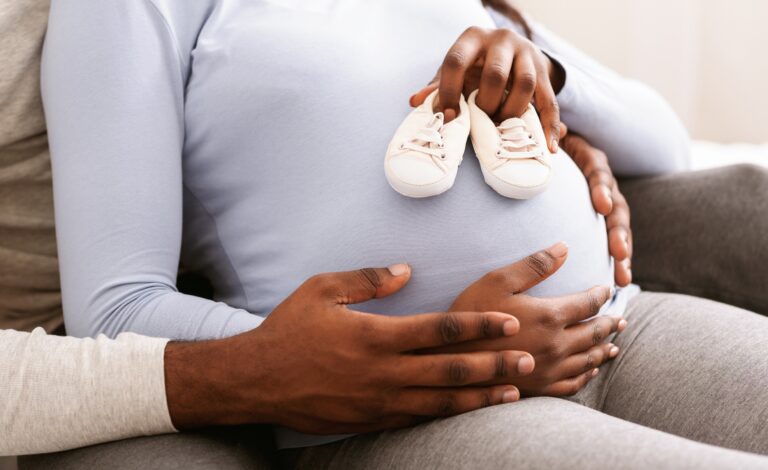It’s time to make inquests fair for families
The injustice of legal representation at inquests
The recent comments by Chief Coroner Peter Thornton QC to The Guardian highlight the quiet injustice of families attending inquests. In short, His Honour Judge Thornton will recommend in his annual report that legal aid should be provided to families where the state also has legal representation. This is to achieve ‘equality of arms’, a fundamental legal principle often at the centre of discussions over recent legal aid austerity.
Recently, MPs agreed that legal assistance should be provided for families for the 1974 Birmingham bombings inquest. Similar comments and coverage has come around following the Hillsborough inquests. Although these are both worthy and just issues, it does not impact on the majority of the 32,000 inquests in the UK, where families are unrepresented. In a standard inquest, where there is not the same extent of public attention, families cannot rely on support of MPs or media pressure to help them gain representation.
There are instead a limited and strict number of options open to families facing an inquest who want legal representation.
Legal Aid
Firstly, there is legal aid, currently at the centre of the discussions. The rules on legal aid representation relate to “exceptional cases”. There are two criteria – if there is a human rights issue, or a wider public interest in the inquest. This latter criteria is where recent media coverage has helped achieve legal aid funding for families, like Hillsborough. A human rights issue relates to deaths that take place in state detention, be it prison, police custody or mental health services. Even in these circumstances, legal aid is only available where there is a gross monthly income of less than £2,657, or a monthly disposable income of £733 and disposable capital of £8,000. These financial limits can however be waived if the circumstances are such that it cannot be expected for the family to pay for representation.
Wider legal aid is available for ‘legal help’ before an inquest, but doesn’t cover any hearings, which arguably are the events the family need the most assistance with. The majority of Coroner’s officers continue to do an excellent job of trying to assist families as much as possible with the pre-inquest process, but naturally can’t help during the inquest hearing itself. Therefore, help around the inquest is not really a priority when considering restricted funds.
Charity organisations
Charity assistance is another option for some families.
The charity INQUEST can provide help for families where there is a human rights issue. Unfortunately, due to their restrictions, they cannot provide assistance without state detention involvement. INQUEST has done a very good job at gaining exposure for the issues surrounding representation at inquests for families, and highlighted case stories where it has made a real difference. However, they do arguably cover inquests already covered under the legal aid exceptional cases rule, only with the benefit of being able to provide assistance without any restrictions.
Currently, there are no specialist charities who can provide representations for inquests for families in standard inquests where there is not a human rights issue. This group of families deserve more attention, as they make up the majority of inquests. This is the group that this new conversation is thankfully focusing on.
Negligence Claim
In some circumstances, when a family is bringing a negligence claim for the death of their loved one, the solicitors acting for the family in the negligence claim can attend the inquest as part of the investigation process for the negligence claim. Although inquests are not negligence trials, and the scope and focus is different, an inquest can often disclose important facts and issues that help a negligence investigation. These claims usually involve the Defendant of the negligence claim paying the costs of the claim, including the inquest attendance costs. Unfortunately, we are seeing more courts strike out larger amounts of the costs for attending an inquest. This often renders attendance and help with an inquest unfeasible. The only other option then is privately funding attendance at an inquest, which can run into £1000s and simply isn’t a realistic option for many.
The injustice of the current system
An inquest can be a confusing and deeply upsetting event for any family. It is often upsetting to have to hear the details of a loved one’s death in cold medical terminology. The focus is also not on the family, but on the state’s duty to find out the cause of death.
The real injustice facing families with inquests is that on top of this, they are often the only party not represented. If a hospital Trust is involved, they will have a legal team. If a GP or nurse are involved, they will have their own legal team. I have never seen an occasion at an inquest where a government body or professional does not have legal presentation. These can often be solicitors and barristers together. And yet, these are all professionals who will have had some involvement with inquests before, or have easy access to advice on inquests.
The Chief Coroner’s comments highlight the considerable injustice being suffered by these families, and the massive disparity in representation rights and access.
The guidance used by the government on providing families with legal aid for inquests advises that representation isn’t necessary because, “funding for representation at an inquest is not generally available because an inquest is a relatively informal inquisitorial process, rather than an adversarial one.” If the process is not adversarial, then why do professional or public bodies need representation? I regularly explain to families that the inquest is not a negligence trial, a comment often repeated by coroners to the family during the trial. It is extremely rare for a coroner to make any findings that could place any public body or professional at risk of civil or criminal liability. And yet, when a family attends an inquest, every other party attending has legal representation. To a family, this does not create an inquisitorial environment. It has the very distinct feel of each party protecting themselves from any legal culpability. What have they got to hide?
The charity INQUEST have been one of the most vocal groups this issue. Director Deborah Coles, following a successful challenge in 2015 to the Lord Chancellor’s guidance on legal aid funding for inquests, commented that the current rules ignored “the reality of bereaved families experiences at these complex inquests where they come face to face with state lawyers paid for by public funds, there to defend their policies and practices”.
What can be done?
There are clearly two options. Either families are provided legal aid for representation to achieve equality of arms, or no party is allowed legal representation at all. The majority of other parties at an inquest are public bodies. To obtain legal representation, they are utilising public money to achieve this. A hospital consultant is not paying privately for their legal representation. It is quite simply unfair for a public body or otherwise publicly funded professional to expect that the rules should be different for a family, who arguably have a greater investment in the content of the inquest, and far less knowledge about its process.
Assuming that the offer to forgo representation is not forthcoming from public bodies, then we need to see how close we are to getting universal legal aid for families attending inquests.
Following the Hillsborough inquests, Shadow Home Secretary Andy Burnham, in a speech in Parliament on 27th April 2016, called on the Government for a ‘Hillsborough Law’. This would allow funding for representation for families at inquests across the board, scrapping the current ‘exceptional’ criteria.
Then Home Secretary, and now Prime Minister, Theresa May replied:
“[Mr Burnham] talked about the availability of funding for families at inquests. That is precisely the sort of issue that can be encompassed in the work that Bishop James Jones will do in hearing from the families about their direct experience and reflecting that to Government. As I said, it is right and appropriate that we then take a clear look at what further action we need to take”.
Bishop James Jones has been asked to prepare a report on families’ experiences of Hillsborough inquests, and clearly, funding and equality of arms will be a key part of the report. The Hillsborough inquests highlighted the unfortunate situation where public bodies approach inquests in an adversarial nature. In those inquests, police groups and individuals actively sought to discredit families and victims. Situations this extreme are rare, but it shows that public bodies are treating inquests as adversarial.
No details have been given on when Bishop Jones’ report will be released, and it seems from Theresa May’s comments that no action will be taken until this report is published. I can only hope that it acknowledges the great injustice being suffered by families as a whole approaching inquests. The reality is that with only 32,000 inquests a year, and only a percentage of those lacking representation, the legal aid bill could be small. A fixed fee could be agreed for representation per day, keeping overall costs low. Arguably though, any cost is more palatable than allowing families to suffer the injustice and disparity of the current system.










